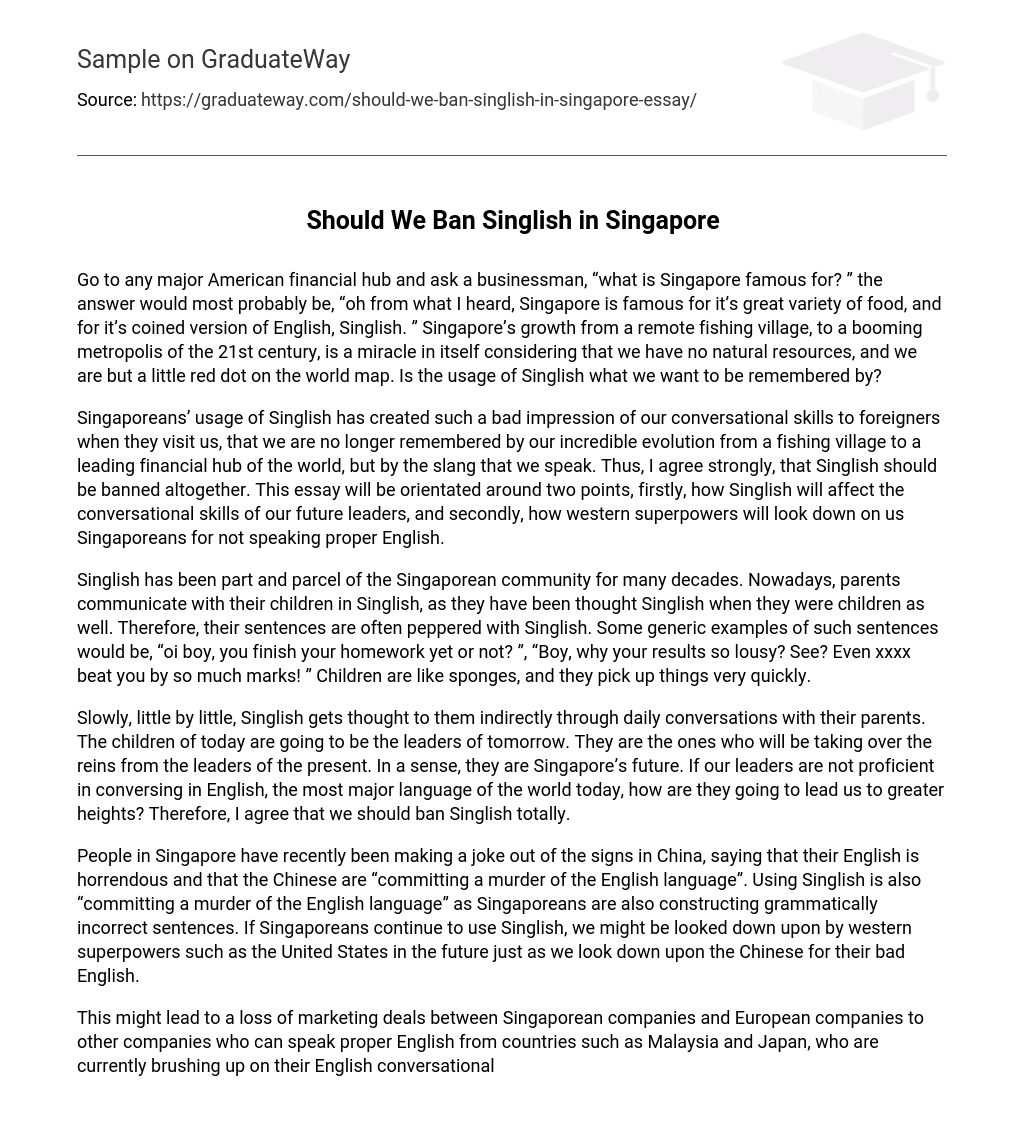If you visit a major American financial center and inquire of a businessman about Singapore’s fame, the response would likely mention the country’s diverse food options and its unique form of English known as Singlish. The transformation of Singapore from a small fishing village to a thriving modern city in the 21st century is truly remarkable, especially considering our lack of natural resources and our small size on the global map. However, is Singlish the legacy we want to leave behind?
The use of Singlish by Singaporeans has resulted in a negative perception of our ability to communicate effectively with foreigners who visit our country. Instead of being recognized for our remarkable transformation from a fishing village to a global financial center, we are now primarily remembered for the slang we speak. Therefore, I strongly support the complete prohibition of Singlish. This essay will focus on two main aspects: the impact of Singlish on the communication abilities of our future leaders and how powerful western nations may view Singaporeans unfavorably due to our inadequate command of English.
Singlish has become deeply ingrained in Singaporean culture, as parents pass it on to their children who were themselves exposed to it during their upbringing. Consequently, Singlish phrases regularly make their way into everyday conversations with the younger generation. Common instances include sentences such as “Hey boy, have you finished your homework?” and “Why are your grades so poor, boy? Look, even xxxx outperformed you by a large margin!” Children possess a remarkable capacity to swiftly absorb language and cultural influences – much like sponges.
Slowly, gradually, Singlish is indirectly transmitted to them through daily conversations with their parents. The current generation of children will become the future leaders, taking over from the current leaders. They represent Singapore’s future. If our leaders are not skilled in conversing in English, the predominant language worldwide, how will they guide us to greater achievements? Hence, I support the complete prohibition of Singlish.
People in Singapore have been making fun of the signs in China, joking about their terrible English and calling it a “murder of the English language.” Conversely, Singaporeans also contribute to this “murder” by speaking Singlish, which consists of grammatically incorrect sentences. If we continue to use Singlish, we may face the same disdain from western superpowers like the United States in the future, just as we currently look down upon the Chinese for their poor English skills.
The usage of Singlish could result in Singaporean companies losing marketing deals with European companies. This could give an advantage to companies from countries like Malaysia and Japan who are actively improving their English conversational skills. Therefore, I support the idea of completely banning Singlish. This is because it not only negatively reflects on Singaporeans but also puts us at an economic disadvantage and creates future problems.





